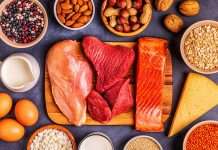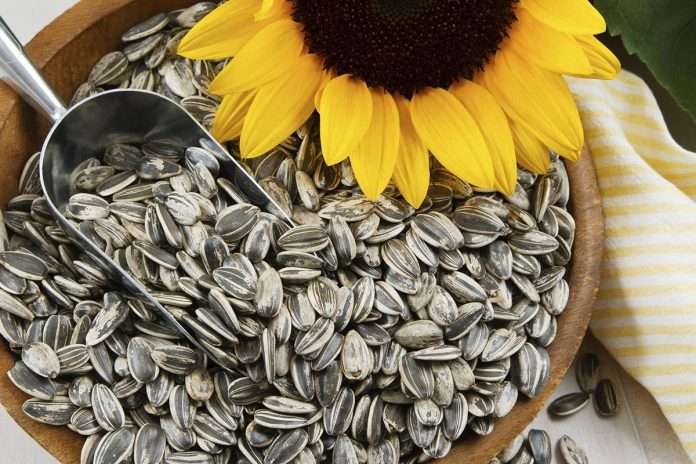What are Sunflower Seeds?
Linoleic, high oleic, and sunflower oil seeds are the three varieties of sunflower seeds that are most frequently utilized. The proportions of monounsaturated, saturated, and polyunsaturated fats vary according on the variety.
Sunflower seeds are typically categorized for commercial use based on the design on their husks. The seeds are referred to as black oil sunflower seeds if the husk is completely black. You might refer to the crops as oilseed sunflower crops. To obtain their oil, these seeds are often crushed. Striped sunflower seeds, also known as candy sunflower seeds, are typically consumed as a snack item.
When used to describe the seed in its pericarp (hull), the term “sunflower seed” is essentially a misnomer. It is a cypsela in terms of botany. Sunflower kernels or sunflower hearts are the edible byproducts after dehulling.
The kernel, the edible portion of the sunflower seed, contains the majority of the seed’s nutrition. Healthy fats and protein are very abundant in it.
Can You Eat the Shell of a Sunflower Seed?
You shouldn’t eat the shells!
The kernel of a sunflower seed is enclosed in an exterior shell that is striped in white and grayish-black.
The portion of a sunflower seed that can be eaten is the kernel, or meat. It’s brown, chewy, and has a flavor and texture that is just a little bit buttery.
Many people like to eat whole sunflower seeds this way, roasting, seasoning, and salting them in their shells. At baseball games, they are very popular.
However, the shells must be spit out and are not meant to be consumed.
The hulls, or shells, are hard, fibrous, and challenging to chew. They include significant levels of the indigestible fibers lignin and cellulose.
Shelled sunflower seeds make a simpler and safer replacement for whole, roasted seeds. You may choose to season them with salt, olive oil, and your preferred spices.
The Shells’ Potential Health Risks
If you ingest a few tiny fragments of shell, it won’t hurt you. However, eating a lot of the shells may result in a clog in your intestinal tract, which is harmful.
You can develop a lump in your small or large intestine known as a bezoar made up of seed shells from any kind of edible plant. Constipation, abdominal pain, and occasionally bowel impaction are possible side effects.
When your colon or rectum is impacted, a significant amount of stool gets trapped there. Hemorrhoids or more severe damage, like a tear in your big intestine, may result from it, and it may be uncomfortable.
It’s frequently necessary to remove a bezoar when you’re unconscious. Surgery might be required in specific situations.
In addition, the edges of sunflower seed shells may be sharp, which could scrape your throat if you ingest them.
What to Do with the Shells
You can use the shells in a variety of ways if you consume a lot of sunflower seeds but don’t want to throw them away.
They can be used as mulch in your garden, which is an alternative since they help keep weeds from growing around your plants.
Additionally, you can substitute them for coffee or tea. Simply quickly roast the shells in a frying pan or oven before grinding them. For every cup (240 mL) of boiling water, steep 1 spoonful (12 grams).
Additionally, ground hulls serve as roughage for livestock such as cows and lambs as well as poultry. They are frequently processed into fiberboard and fuel pellets for industrial use.
To Sum Up
You shouldn’t eat the shells of sunflower seeds. The shells could hurt your digestive system because they are fibrous and indigestible.
The shells should be spit out if you prefer to eat whole sunflower seeds. Otherwise, you can just eat shelled sunflower seeds, which only contain the delicious, nutrient-rich kernel.
Last Updated on 2 years by admin





















